Hunt the Man Down

Brief Synopsis
Cast & Crew
George Archainbaud
Gig Young
Lynne Roberts
Mary Anderson
Willard Parker
Carla Balenda
Film Details
Technical Specs

Synopsis
As waitress Sally Clark tallies the night's receipts in a Salinas, California bar, a gun-wielding robber enters and demands money. The theft is interrupted by the bar's dishwasher, loner Bill H. Jackson, who overwhelms the robber. Later, Bill is hailed as a hero, but the resulting publicity leads to his re-arrest for murder. Twelve years earlier, Bill, whose real name is Dick Kincaid, was accused of murdering Dan Brian, but escaped during his trial in Los Angeles. After he is assigned a public defender, Paul Bennett, Dick relates how he became a murder suspect: In 1938, in a Los Angeles bar, Dick, an aspiring pianist, meets three young couples and an apparently single woman, Joan Brian, then attends a private party with them. While Dick dances with Joan, her husband Dan suddenly appears and acts jealous of Dick. Later, the now-drunk Dan corners Dick in a bedroom and, after accusing him of being Joan's lover, draws a gun. Dick grabs the gun and tosses it on the bed, and the two men brawl. The fight is soon stopped by the seven other guests, and as Dick leaves, he states angrily that he might have killed Dan. The next morning, Dan is found shot dead in his bed, with his gun lying next to him. Because Dick's fingerprints are still on the gun and he does not have a solid alibi, he is indicted. During his trial, all seven partygoers testify that they did not see Dan's gun on the bed, but did hear Dick's threat. Sure that he will be convicted, Dick escapes when his guard suffers an attack and collapses in a deserted hallway. In the present, Dick concludes his story, and Paul offers to talk to the district attorney's office about a plea bargain. When Paul reports to Dick in prison that he has been offered a manslaughter charge, Dick insists on proving his innocence, even though the devoted Sally worries that he may be found guilty of the more serious charge. Realizing that the key to the case lies in the testimony of the seven witnesses, Paul recruits his father Wallace, a retired policeman, to help track them down. The first witness they find is Burnell "Brick" Appleby, a blind veteran who operates a book binding store. Appleby adds nothing to his previous statements and tells Paul that his girl friend, Pat Sheldon, another witness, died during the war. The next witness Paul and his father locate is Kerry McGuire, a hopeless alcoholic. The intoxicated Kerry tells Paul only that, after the trial, he divorced his wife Alice, who now works in a show somewhere in Los Angeles. As soon as Paul leaves, however, Kerry rushes to make a phone call. Paul soon discovers that Alice has assumed the name Peggy Lynden and works as a puppet master's assistant. After admitting that she suffered a breakdown before the womanizing Kerry left her, Alice nervously reveals that Dan's wife Joan married one of the witnesses, Walter Long, a year after Dan was murdered. She then offers to pass on the Longs's new address when she returns home. Wallace, meanwhile, finds the suddenly flush Kerry drunk in a bar and persuades him to take a drive. Wallace is followed by two thugs, who shoot into his car, killing Kerry. Although wounded, Wallace fires back, and the thugs suffer a fatal crash. Apprised by his father that the thugs were employees of racketeer Packy Collins, Paul interviews Collins, but he claims no knowledge of Dan or Kerry. While at Collins' office, Paul receives a call from Alice, who is about to give him the Longs's address when a man breaks into her apartment and attacks her. Paul alerts the police, saving Alice's life, and later gets hold of the address. The wealthy Longs, however, deny they had an affair or were being blackmailed by Kerry. The last witness to be questioned is Rolene Wood, Walter's former girl friend, who is now living in Tucson. To Paul's dismay, Rolene is mentally ill and talks incoherently about Pat Sheldon, her roommate at the time of the murder. Despite Paul's lack of new evidence, Dick's trial begins. After Appleby testifies, Paul offers to drive him to Pat's grave and is shocked when the blind man lays flowers on a stranger's grave. Paul questions Pat's father, who admits that he lied to Appleby about Pat's death, because he did not want to break the veteran's heart after Pat married another man. Deducing that Pat married Collins, Paul calls her as a witness. Paul reveals that Pat was dumped by Dan, her fiancé, prior to his marriage to Joan and intimates that she was being blackmailed by Kerry, with whom she later had an affair. Despite Paul's statements, Pat sticks to her story until Rolene walks into the courtroom. Paul tricks Pat into believing that Rolene is there to expose Pat's activities on the night of the murder, and Pat finally confesses to Dan's murder. Later, after Sally and Dick thank Paul for his hard work, Wallace asks his son for a permanent job.

Director
George Archainbaud
Cast

Gig Young
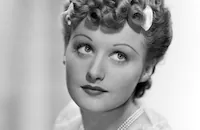
Lynne Roberts

Mary Anderson

Willard Parker

Carla Balenda
Gerald Mohr
James Anderson
John Kellogg
Harry Shannon
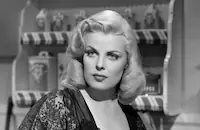
Cleo Moore
Christy Palmer
Paul Frees
James Seay
Herb Vigran
Sim Simone
Alan Bridge
William Forrest
Ed Dearing

Vince Barnett
Michael Barrett
Jack Deery
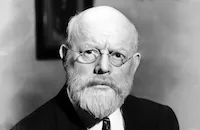
Howard Mitchell

Iris Adrian
Charles Sullivan
Al Hill
Bob Cavendish
Dick Elliott
Ken Terrell
Frank Cady
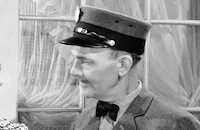
John Butler
Charles Conrad
John Hedloe
Ralph Montgomery
Bert Kennedy
Jack Gargan
Luther Crockett

Lee Phelps
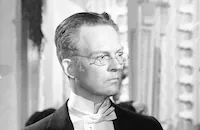
Don Dillaway
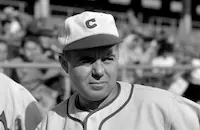
Ray Walker
William Haade
Mira Mckinney
Crew
James Altwies
C. Bakaleinikoff
Samuel E. Beetley
James Casey
Michael Cisney
Albert S. D'agostino
B. G. Desylva
Walter E. Keller
Nicholas Musuraca
Clem Portman
Lewis J. Rachmil
Sid Rogell
Francis Sarver
Paul Sawtell
Devallon Scott
Darrell Silvera

Film Details
Technical Specs

Articles
Hunt the Man Down (1951) -
By Richard Harland Smith

Hunt the Man Down (1951) -
Quotes
Trivia
Notes
The working titles of this film were Public Defender and Seven Witnesses. Although December 1949 news items reported that RKO bought a story by Thames Williamson entitled "Hunt the Man Down," Williamson's story is not related to this film. Richard Fleischer was first slated to direct the picture, according to Hollywood Reporter news items.














